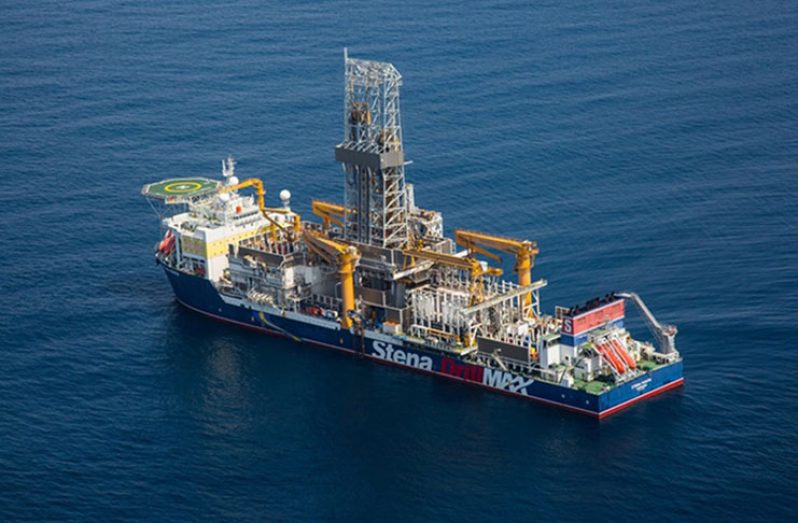…IMF projects 4.4 per cent growth for Guyana
— says medium-term prospects are very favourable with oil production
The International Monetary Fund (IMF) has released its final assessment of Guyana projecting the economy to grow 4.4 per cent in 2019 and pointed out that the medium-term prospects are very favourable with oil production on schedule to begin in early 2020.
However, the bank noted that current account deficit is estimated to rise to 22.7 per cent of Gross Domestic Product (GDP) on the back of higher imports related to oil production, which will be largely financed by Foreign Direct Investment (FDI) in the petroleum sector.
Nevertheless, IMF said the commencement of oil production in 2020 will substantially improve Guyana’s medium-and long-term outlook. “The oil sector is projected to grow rapidly, accounting for around 40 per cent of GDP by 2024 and supporting additional fiscal spending annually of 6.5 per cent of non-oil GDP on average over the medium term, which will help meet critical social and infrastructure needs. Public debt and the external current account deficit are projected to decline steadily following the onset of oil production,” the bank said in its latest report on Guyana.
It welcomed Guyana’s broad?based economic expansion in recent years underpinned by prudent macroeconomic policies.
While the bank’s directors said the medium?term outlook is favourable, they highlighted that the commencement of the oil production presents both opportunities and challenges. The directors emphasised that to ensure the effective use of windfall revenues, policies should focus on reducing macroeconomic vulnerabilities, addressing structural weaknesses, boosting inclusive growth, and promoting intergenerational equity.
They also welcomed the authorities’ Natural Resource Fund (NRF) legislation for managing Guyana’s oil wealth and emphasised the need to complement it with a fiscal responsibility framework to avoid fiscal deficits. In addition, they commended that the NRF’s framework aims to save some of the resource income for future generations and contain the pickup in public spending.
ACT SMARTLY
To meet these objectives, the directors called on the authorities to constrain the annual non-oil deficit to not exceed the expected transfer from the NRF. This rule could be phased in over the next three years to allow a smooth widening of the non-oil deficit (in relation to non-oil GDP).
The directors also agreed that monetary policy should gradually revert to a neutral stance to contain potential inflationary pressure as public spending increases, economic growth strengthens, and credit expands.
Over the medium-term, developing the infrastructure for greater exchange rate flexibility within the monetary policy framework would help sustain healthy economic growth while maintaining price stability and facilitating adjustment to oil price and other external shocks, the IMF said.
The bank’s directors noted the continued progress in strengthening transparency and governance and encouraged sustained efforts to implement the recommendations of the 2019 Extractive Industries Transparency Initiative Report, which would promote effective and transparent management of the oil wealth.
Further, they supported strengthening anti-corruption frameworks, including by facilitating the work of the Integrity Commission, to improve governance, support investor confidence and promote growth.
At the same time, addressing institutional capacity weaknesses would enable decisive implementation of policy actions to further strengthen governance.
Directors noted that it is important to further improve the quality, efficiency, and transparency of public financial management. They recommended addressing the shortcomings identified by the 2017 Public Investment Management Assessment (PIMA) and expenditure review before public investment is significantly scaled?up with oil revenues.
They recommended an asset quality review to assess the credit quality of banks with high non-performing loans; welcomed the progress made in implementing the 2016 FSAP recommendations and encouraged completing the remaining ones. The bank noted that authorities’ progress in strengthening the AML/CFT framework and called for further efforts in this regard.
“[The] directors encouraged the authorities to use the opportunity presented by oil revenues to undertake structural reforms to support economic diversification, tackle skilled labor shortages, and achieve inclusive and equitable growth. Priority should be given to address infrastructure bottlenecks and upgrade the education system. In addition, promoting more flexible working arrangements could help increase female labor participation. Directors underscored the importance of improving the business environment and enhancing competitiveness. They also recommended putting more efforts into developing climate?resilient infrastructure networks,” the report concluded.




.png)









